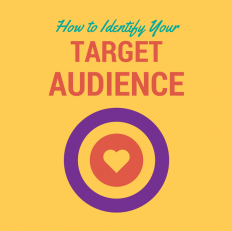How to Identify Your Target Audience
Want to sell more homes? Of course you do. But it’s not that easy, is it? If you really want to find new leads, then you’ve got to get inside the heads of buyers and sellers within your market.
The problem? Many Realtors get too comfortable. They rely on their personal experience and bias; they believe that they understand their target market just because they’ve been selling homes for ten, fifteen, or twenty years. Spoiler: that’s not always the case.
So you’ve got a choice ahead of you: do you want to stick with the identity of your “ideal buyer” that you conjured up over a 15-minute office meeting? Or do you want to find out who your target audience truly is?
Demographics vs. Psychographics
“Demographics” seems to be a buzzword among real estate marketers. What are the demographics of our target audience? How old are they? What gender do they identify with? Where are they from?
Demographics are important when trying to identify your target audience, but that’s just the surface level. Let’s go deeper. If you really want to get inside the heads of buyers and sellers, then you need to think about psychographics as well. Psychographics are the motivations, interest, and online behaviors that drive a person’s decisions. If demographics tell you about what a person is, then psychographics tell you about what a person does.
Key Questions
With that in mind, let’s run through some questions to get you thinking more about your target audience.
1) What are you selling and why? What makes your business unique?
Yes, you’re selling houses. But why? Do you sell homes to help North Carolinians because you love to watch families build a legacy? Do you specialize in land transactions because you’re passionate about farms and homesteading? Go deep.
Since all Realtors sell houses, what else are you “selling?” Maybe you offer your clients the use of a moving truck after a sale. Maybe you highlight superior customer service. Whatever it is, think about your niche in real estate.
It’s likely that your business objectives influence who your target audience is. Does your target audience love camping in the hills of the Smoky Mountains? Does your ideal buyer also share a passion for homesteading?
2) Why should people do business with you instead of another Realtor? What unique strengths does your team bring to the table?
Many buyers and sellers are under the false assumption that all real estate agents are alike. So what differentiates your office from the other team down the street? Is there an agent in your office that specializes in short sales or high-end properties? These qualities say something about the service you provide.
Your strengths play into who your target audience is. You want to target an audience that values the specific strengths your team offers.
3) Always focus on your primary market. Who has already done business with you?
Don’t be fooled into thinking that you provide real estate services to everyone. At the very least, you probably do business with buyers and sellers within a specific financial bracket. Always narrow your focus to a particular subset of clients. Sure, you can have a secondary market and you’d be happy to serve clients outside of your normal audience, but it’s important to have a specific group in mind.
Think about buyers and sellers who have already done business with you. What are they like? If you notice common trends among your past clients, then it’s likely that these trends signal what your primary market is.
4) What problems do you solve for your clients?
What are your clients’ pain points? What obstacles do they often face while buying or selling a home? More importantly, how do you help them navigate these obstacles? Once you identify common problems for your clients, you get closer to identifying the beliefs and values of your target audience.
5) Where does your audience live online? What are their online motivations?
If you want to market to your target audience online, then it’s important to figure out where they hang out on the internet. Let’s say your target audience is 50-year-old buyers with limited extra income in search of a second home. That audience will probably not be on Instagram, but they might be active on Facebook or an online forum. Do your research.
Based on where your audience lives online, you can likely deduce which motivations drive their online decisions. You could assume that Facebook users want their online experience to be social. LinkedIn members search for networking opportunities, and people who explore forums might be motivated by research.
These motivations influence your online approach to your target audience. If your target audience wants a social experience, then it’s important for you to engage them with comments and pictures. If they just want to find direct answers for their questions, then you want to create information infographics or blog posts to aid them in their research.
It’s likely that your target audience will possess more than one online motivation. As such, you will want to create a blend of content to reflect that.
Benefits
When you identify your target audience and center your messaging on their wants and needs, then your marketing strategies will likely see better ROI, better cost efficiency, and better conversions. When you speak directly to your target audience – instead of blasting your content to everyone on the internet – then you’re more likely to build an audience that listens to you.
How do you define your target audience? Let us know in the comments below.



Your post is great. You are the best blogger I have ever seen.
I agree like you say to sell more homes is not easy, based in my experience it’s really hard to find a good audience and buyer to selling your homes, Thanks for sharing your article I really appreciate it and you article is very helpful information to us.